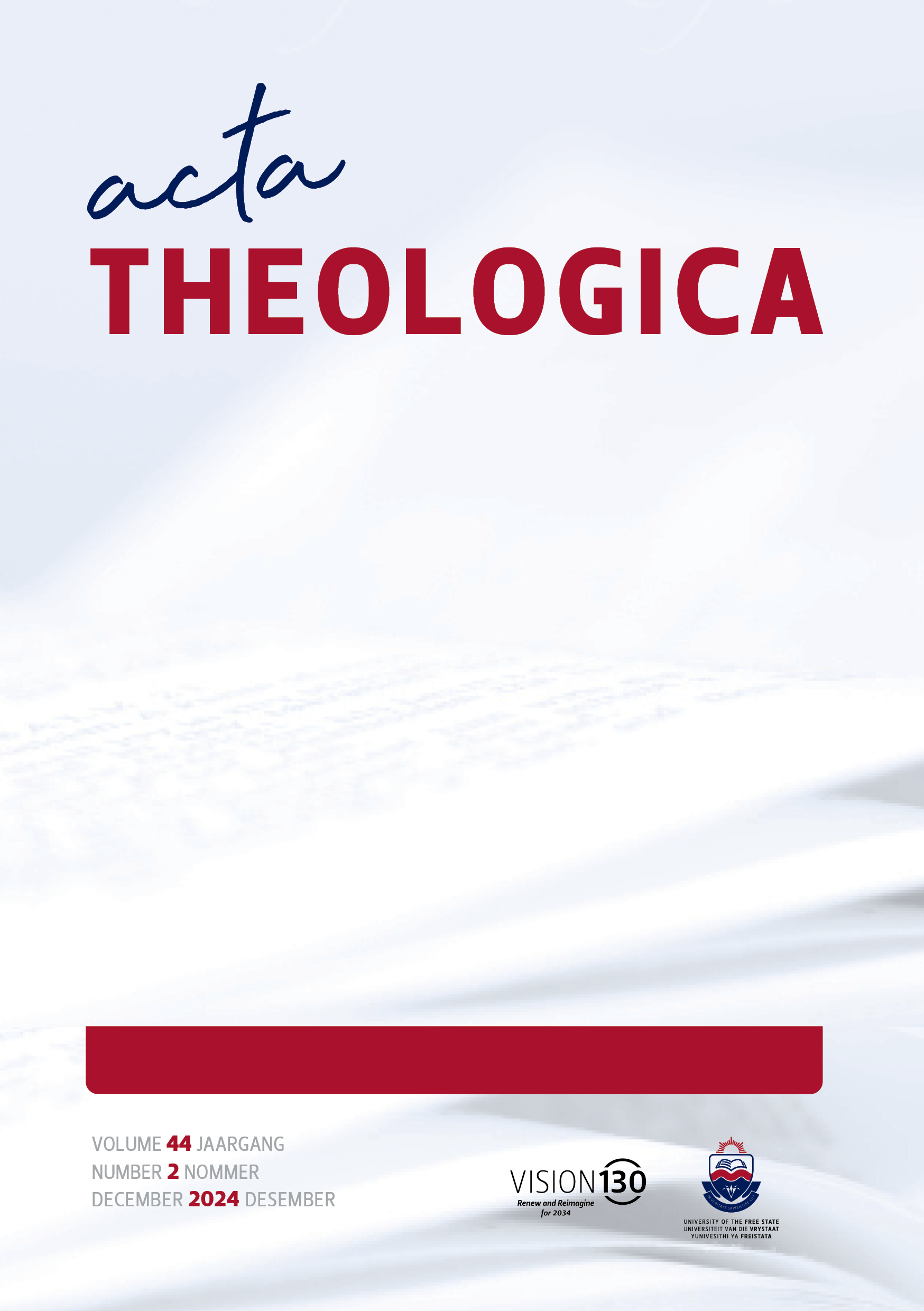Pastoral leadership for a relevant missional ecclesiology in a context of poverty
DOI:
https://doi.org/10.38140/at.v44i2.8918Keywords:
Missional ecclesiology, Poverty, Well-being, LeadershipAbstract
The relevancy of an ecclesiology within a context of poverty is determined by an understanding of missional ecclesiology, the context of poverty, and the interaction of leadership and congregants within a context of poverty. Missional ecclesiology, a short conceptualisation of poverty, and empirical data on practices of pastoral leadership within a context of poverty guide the professional practice to answer the question as to the relevance of a missional ecclesiology in congregations within a context of poverty. The definition of poverty evolves from a discussion on the basic needs of people. In this article, poverty is defined as a circumstance where the deprivation of individual and collective human abilities and resources hinders people in achieving their well-being. Where the professional practices of leaders in congregations within a context of poverty resemble love, caring, understanding, and commitment towards the well-being of the people, congregants allow their leaders to have autocratic authority over their lives. When congregants experience mutual trust and pastoral leaders attend to their needs, they grow in their experiences of their well-being. Due to the latter, these congregants are committed to take part in a missional ecclesiology through the autocratic authority, inspiration, and teachings of their pastor.
Downloads
##submission.downloads##
Published
How to Cite
Issue
Section
License
Copyright (c) 2024 M. Maritz

This work is licensed under a Creative Commons Attribution 4.0 International License.








